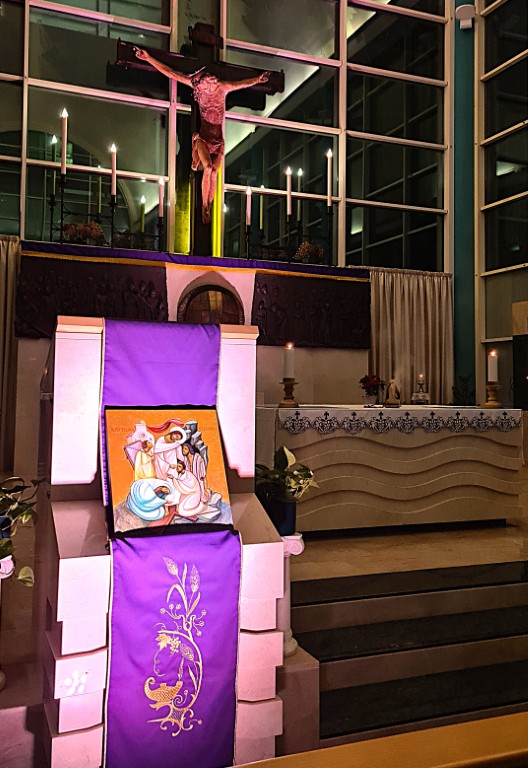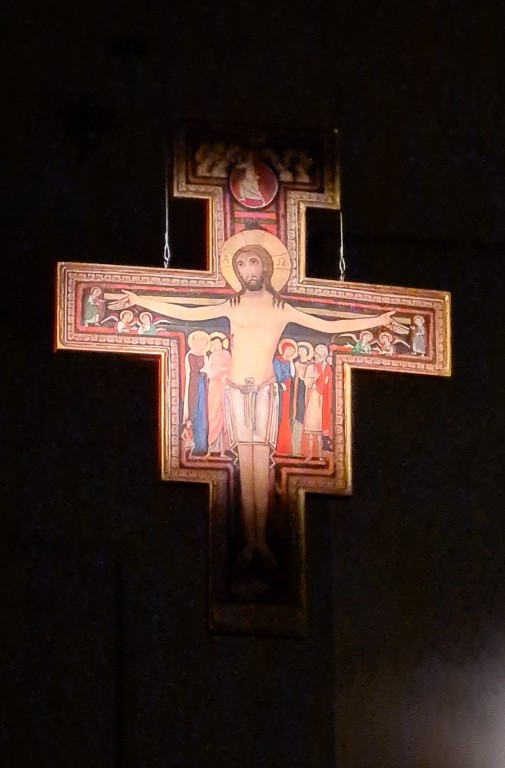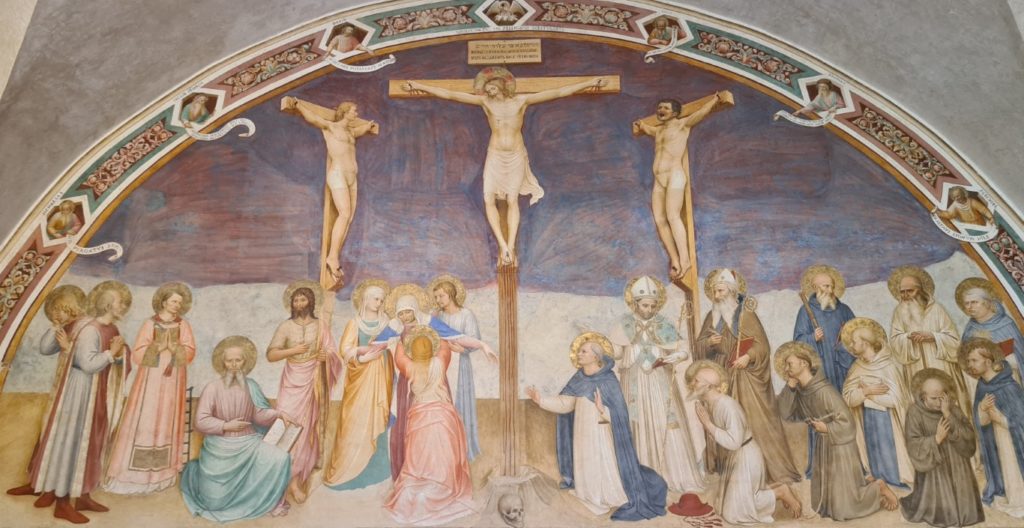Embracing the Inner Darkness
While preparing to write this reflection, it happened that on that Friday, we, as the MSSP B’Kara Oratory community, held our weekly adoration of the Cross at Mater Dei Hospital’s chapel instead of our own. In that place, the profound depth of Christ’s abandonment resonated deeply within me. Surrounded by the suffering and hidden anguish of patients, nurses, family members—both believers and unbelievers alike—it became impossible not to reflect on the mysterious darkness and loneliness that Jesus himself experienced on the Cross. Standing in that hospital chapel, logic provided no satisfying answers to the reality of human pain. The only authentic response seemed to be silence: a humble, trusting silence rooted in hope and anchored firmly in God’s eternal Fatherhood, mercy, and unwavering love, even when darkness seems overwhelming and explanations lie beyond our grasp.
The reflection I offer below is a simple, humble meditation intended to help the reader draw a little closer to the mystery of Jesus’ cross during this sacred time of Lent. It does not aim to provide detailed biblical exegesis or theological analysis, but rather to inspire a heartfelt contemplation of Christ’s suffering and our participation in his journey. For those interested in a deeper exegetical exploration of the final events and death of Christ on the cross, I warmly suggest reading section 42 (pages 1031-1096) of Raymond E. Brown’s profound work, The Death of the Messiah. May these thoughts gently guide us to linger more intimately near the cross of Jesus, encountering anew his redeeming love.
In the mysterious darkness that enveloped Calvary from noon until three (Mt 27:45), we witness more than a mere historical event. This darkness symbolizes Christ’s profound inner emptiness, His willingness to enter humanity’s deepest experience of abandonment. Christ’s cry, “My God, my God, why have you forsaken me?” (Mt 27:46, Ps 22:1), is a poignant revelation of His kenosis, the deliberate emptying of His divine glory to share fully in our human brokenness (see Phil 2:7, more on this below).
Consider your own daily moments of darkness—the quiet despair when prayers seem unanswered, the hidden anxiety beneath your confident exterior, the inner wounds caused by rejection or failure. How often do we resist or mask these feelings rather than bravely entering into them?
In Gethsemane, Christ confronted his inner turmoil, confessing, “My soul is overwhelmed with sorrow to the point of death” (Mt 26:38). Here He models radical honesty. Do we, in our ordinary lives, honestly acknowledge our pain, or do we habitually ignore or suppress it? Perhaps you recall moments at work when your efforts seemed meaningless, or in relationships when you felt unloved or misunderstood. Christ willingly chose to embrace this darkness, to enter into a depth of emptiness where no human comfort could reach. In these moments, do you see an opportunity for spiritual growth, a deeper communion with the One who knew abandonment?
This darkness resonates with the primal chaos in Genesis, when darkness covered the abyss (see Gen 1:2). Yet even then, God’s Spirit hovered over the darkness. Likewise, in our personal struggles, for example, when finances crumble, when friendships break down, or when dreams fade, God is mysteriously present. Could our suffering be a holy space of encounter, an invitation to trust beyond what we see?
Moses encountered God amidst clouds and darkness on Mount Sinai (Ex 20:21). Abraham waited in darkness before receiving God’s covenant promise (Gen 15:12). Similarly, can you recognize God’s hidden presence in moments when clarity fades and your life path feels obscure? Are you willing to enter patiently into uncertainty, believing in God’s unseen purpose?
St. Paul urges us, “let the same mind be in you that was in Christ Jesus, who, though he existed in the form of God, did not regard equality with God as something to be grasped, but emptied himself” (Phil 2:5-7). To empty oneself, kenosis, is to let go of ego, pride, control, and even our own need to appear strong. Reflect honestly: How often do you cling to control or status, afraid of admitting your vulnerability or limitations? Can you recall times when surrendering these illusions led you to genuine freedom?
Daily life provides endless opportunities for kenosis, for example, letting go of resentment when someone offends you, choosing forgiveness rather than revenge, or accepting a correction gracefully rather than defensively. Have you recently faced an opportunity to empty yourself of pride or bitterness? How did you respond?
Christ teaches us that “unless a grain of wheat falls into the earth and dies, it remains just a single grain, but if it dies it bears much fruit” (Jn 12:24). This death, this catharsis, this purification, this cleanliness, through self-emptying, often feels counterintuitive, yet it’s precisely where spiritual rebirth happens. Could the conflicts, disappointments, or struggles you’re experiencing now be seeds for new spiritual growth?
Ultimately, Christ’s kenosis on the cross reassures us that darkness does not have the final word. “Where, O death, is your victory?” (1 Co 15:55) we sing solemnly on Easter vigil. Every moment we surrender our pride, our pain, or our fears, we imitate Christ, entering into a transformative catharsis. Just as Christ’s darkness ended in resurrection, your personal darkness, faithfully embraced, can lead to profound inner renewal.
“Death has been swallowed up in victory.”
“Where, O death, is your victory?
Where, O death, is your sting?”
1 Co 15:55
In our spiritual journey, we are invited into this sacred darkness, into our own kenosis. To embrace Christ’s darkness on the cross means to courageously confront our inner emptiness, our weaknesses, and our abandonment, trusting that through this darkness we experience genuine catharsis and the birth of new self. As St. John of the Cross profoundly expressed, it is through the “dark night of the soul” that we achieve union with God.
May we journey courageously inward, recognizing Christ beside us in our shadows. May we trust that the darkness we often fear is precisely where God waits to meet us, heal us, and bring forth new life.


